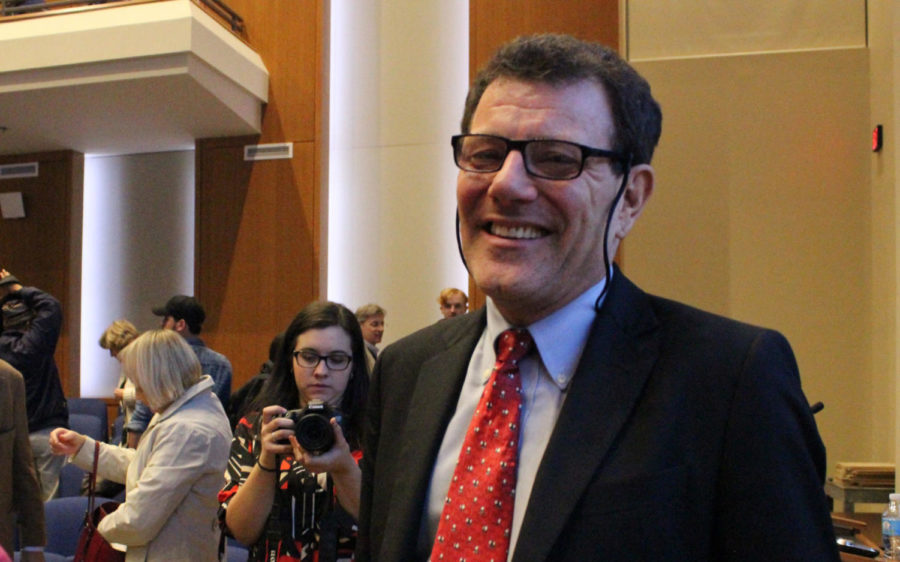Pulitzer Prize winner inspires UK audience to change the world
October 27, 2017
A drop in the bucket may seem small, but it is still a change.
Journalist and author Nicholas D. Kristof made this point to the audience in a nearly packed Kincaid Auditorium on Thursday evening.
“I really have become a believer in drops in the bucket,” Kristof said.
Kristof has won the Pulitzer Prize for International Reporting as well as for Commentary. He is a regular CNN contributor, and has also written an op-ed column for the New York Times since 2001. He has often been acknowledged for shining a spotlight on neglected conflicts, especially those concerning other countries and nations.
“I want to talk about not only how one can make the world the better place a little bit, but also to raise the bar for UK’s already outstanding contributions to the world,” Kristof said.
Kristoff focused on gender equality around the world, specifically in China. After reporting on human trafficking around the world, he did what he said many journalists would never do: He purchased two girls, then arranged for them to return to their families.
“What made matters worse, I received a receipt from the brothel,” Kristof said. “It’s like a car deal.”
Kristof said that makes him think about similar things going on in the United States. He said sometimes young girls may get in a fight at home, then flee, looking for comfort. Sometimes they find pimps. Then the girls end up arrested rather than their pimps.
“That’s just one example of bad things happen disproportionally around the world,” he said.
He said that it is counterproductive to simply view the world as a mess. He presented numbers via PowerPoint that demonstrated a glimpse of global progress in that people are more literate, there are more vaccinations available to children, and many diseases are near eradication. His point is that people are making progress, even when a little change feels only like “a drop in a bucket.”
He shared many stories of what he has seen throughout his career. He mentioned the idea of the “empathy gap,” and the importance of bridging it.
He advised students to study abroad to get out of their comfort zone, which will broaden the learning experience and allow students to see global issues.




















































































































































